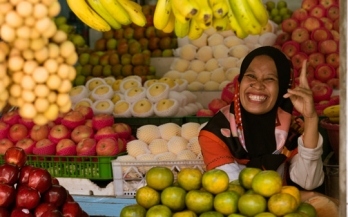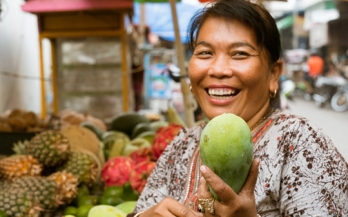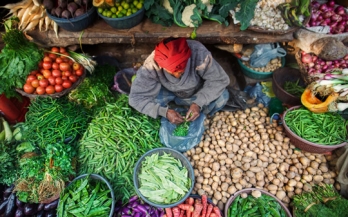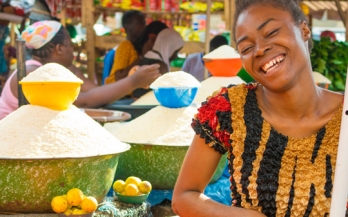The Second Global Summit on Food Fortification Virtual Series will kick off today November 6th with a high-level launch event as part of the Micronutrient Forum Global Conference CONNECTED. This year’s Summit will gather thousands of experts on food fortification, staple crop biofortification, food systems, and nutrition. Due to COVID-19 the Summit will go fully digital.
In 2021 we nutrition champions are blessed with not one, but two summits to advance nutrition outcomes. The UN Food Systems Summit (FSS) will take place in September in New York and the Nutrition for Growth Summit will be held in Tokyo in December.
Healthy Diets for Tea Communities is a coalition led by the Global Alliance for Improved Nutrition (GAIN) and the Ethical Tea Partnership (ETP), with funding from with eight leading tea companies to address poor nutrition in tea supply chains in Assam (India), Kenya, and Malawi.
Today, the World Food Programme (WFP) was awarded the Nobel Peace Prize for its efforts to combat a surge in global hunger amid the coronavirus pandemic. To congratulate on the award, Lawrence Haddad, GAIN Executive Director, sent the following message to David Beasley, Executive Director of the World Food Programme.
Eggs are packed with essential fatty acids, vitamins and minerals, but too few enjoy access to this critical source of protein. This week, GAIN is celebrating this "super food" and honouring the contributions of "food heroes" - individuals who throughout the COVID-19 pandemic have continued to bring eggs to market and onto the table, especially for young children.
As the COVID-19 pandemic shifts into its second phase, food fortification has never been so necessary in the fight against malnutrition, according to a call to action endorsed by Food Fortification Initiative, Global Alliance for Improved Nutrition, Helen Keller International, Iodine Global Network, Nutrition International, the Scaling Up Nutrition Movement, UNICEF and the World Food Programme.
A few months ago, a new analysis came out with a shocking number: about 1.6 billion people could not afford a healthy, sustainable diet. A few weeks ago, the publication of the 2020 "State of Food Insecurity and Nutrition in the World" (SOFI) report further rocked the food and nutrition community with an even more startling number: an estimated 3 billion people could not afford a healthy diet.
With a year to go, the Summit will offer a platform like no other to bring together key players from the worlds of government, science, business, policy, and academia, as well as farmers, indigenous people, youth organisations, consumer groups, environmental activists, and other key stakeholders.
Today the United Nations Special Envoy, Agnes Kalibata, announced experts across the fields of food, agriculture, health and climate change who have committed to advance solutions to make food systems more resilient and inclusive through the UN Food Systems Summit in 2021.
The COVID-19 crisis has demonstrated that humanity is placing too much pressure on the natural world and has laid bare profound inequalities in societies. Deforestation, wildlife trade and conversion of land for highly intensive and unsustainable agriculture and livestock production, are destroying ecosystems and increasing interactions between wildlife and humans, opening the door to infectious disease outbreaks.










